Brittney Beadle’s Stage 4 Metastatic Breast Cancer Story
After discovering a lump in her right breast, Brittney’s doctors found a mass but assumed it was non-cancerous due to Brittney being 18 years old. A few months later, the lump grew and her nipple inverted, leading her to get a biopsy that revealed the lump was cancerous.
On the day of her Senior prom, Brittney received a double mastectomy. Following surgery, her doctors told her she was cancer-free. A month later, she learned she had stage 4 metastatic breast cancer. For the past 8 years, Brittney has been living life to the fullest with stage 4 breast cancer.
Brittney shares her cancer story with us, including how she stays positive, how she found a supportive cancer community, what led her to her cancer care teams, and her experience with different cancer treatments including chemotherapy, immunotherapy, and radiation. Plus, she explains why it’s important to advocate for yourself as a patient.
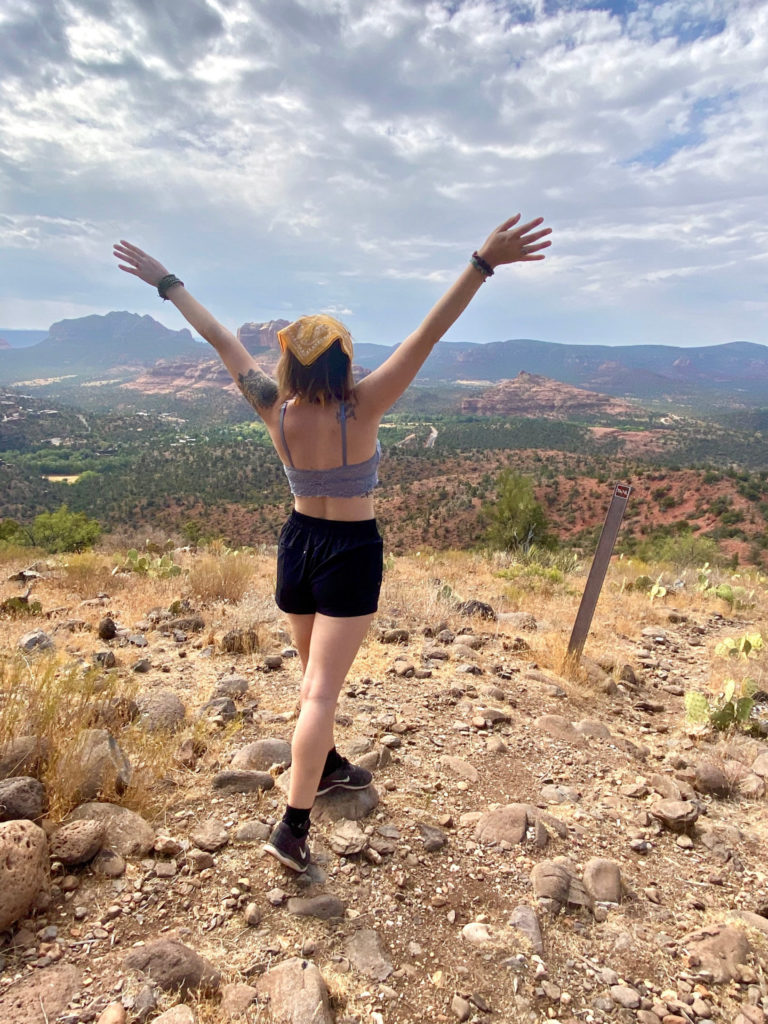
- Name: Brittney B.
- Diagnosis (DX):
- Breast Cancer
- Right breast
- Breast Cancer
- Staging: 4
- Symptoms:
- Lump in the right breast
- Inverted nipple
- Treatment:
- Surgery
- Double mastectomy
- Reconstruction
- Chemo
- Taxotere
- Herceptin with Perjeta
- Zoladex
- KADCYLA
- Xeloda
- ENHERTU
- Radiation
- Gamma knife
- Surgery
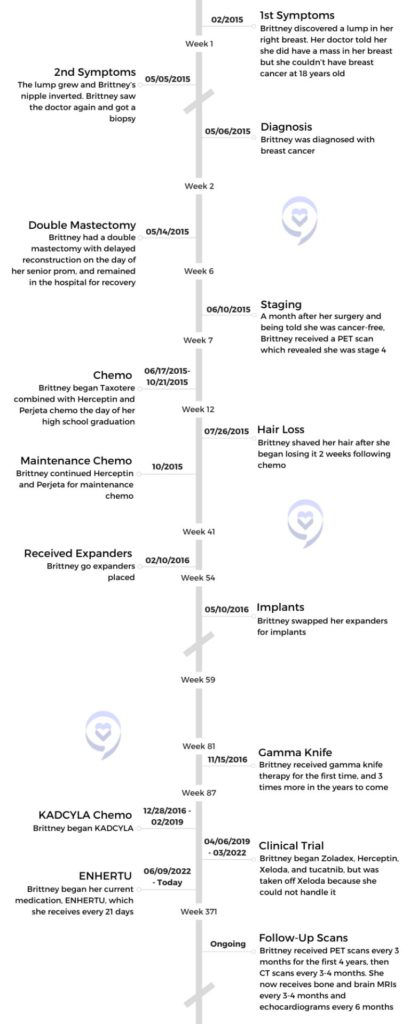
My life began after I had cancer and I was still able to do everything that I wanted to. I had to pivot a lot of times because cancer did take some things away from me, but I pivoted and then found a new path for myself. A beautiful path.
Brittney B.
This interview has been edited for clarity. This is not medical advice. Please consult with your healthcare provider for treatment decisions.
- Symptoms
- Diagnosis
- What was your diagnosis?
- Did the doctors apologize for their misdiagnosis?
- Taking breast cancer in young people more seriously
- What was your staging?
- Where did you receive cancer care?
- The importance of advocating for yourself as a patient
- How did your doctors misdiagnose your staging?
- How did you process your cancer diagnosis?
- Treatment
- Quality of Life
- Reflections
Symptoms
Tell us about yourself
I’m Brittney Beadle. I am a very adventurous soul, so I move around a lot and I love going for hikes outdoors and in nature. Anything that involves being outside is my hobby. Getting onto the lake and being on a paddleboard or swimming in the ocean, whatever it is outside, I’m totally into it.
What were your first symptoms?
My symptom was I found a lump in February of 2015 while I was still in high school and I told my mom about it. She made an ultrasound and a mammogram appointment with the breast specialist and that’s where they confirmed that I did have a mass. They said, “You’re 18 and 18-year-olds don’t get breast cancer” and then sent me home.
Three months later, I had a new symptom. The lump had grown immensely and it caused my nipple to invert. At this point, I’m like, something’s wrong. I told my mom again, and that’s when I had another ultrasound and another mammogram done. This time they did the biopsy. I saw the worried look on her face when she saw that I had an inverted nipple. So she did the biopsy after that.
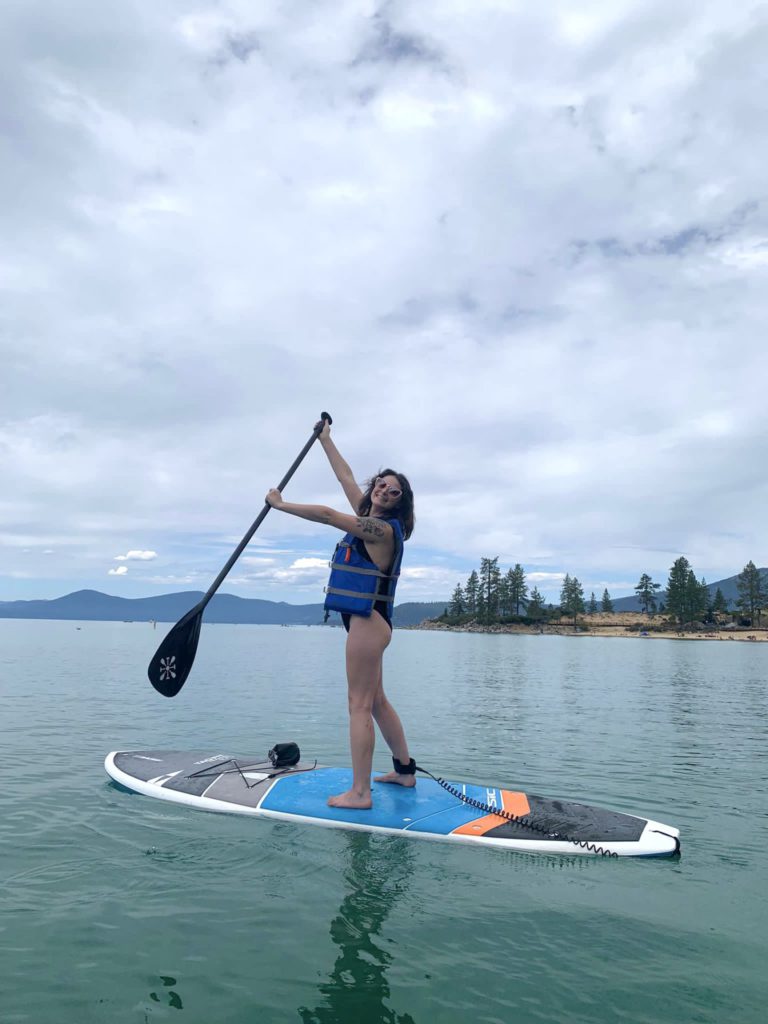
I found a lump in February of 2015 while I was still in high school and I told my mom about it. She made an ultrasound and a mammogram appointment with the breast specialist and that’s where they confirmed that I did have a mass.
Does breast cancer run in your family?
My maternal grandmother had early-stage breast cancer in her 50s, but we didn’t have the gene or anything like that.
What did you think when your mom made those appointments?
For the first appointment, I told my mom it was unnecessary. It’s just a lump. She’s like, “No, I want it to be checked out.” She made me see the doctor. Then the second time, when I found the lump again, it had grown, and caused my nipple to invert, she made an immediate appointment.
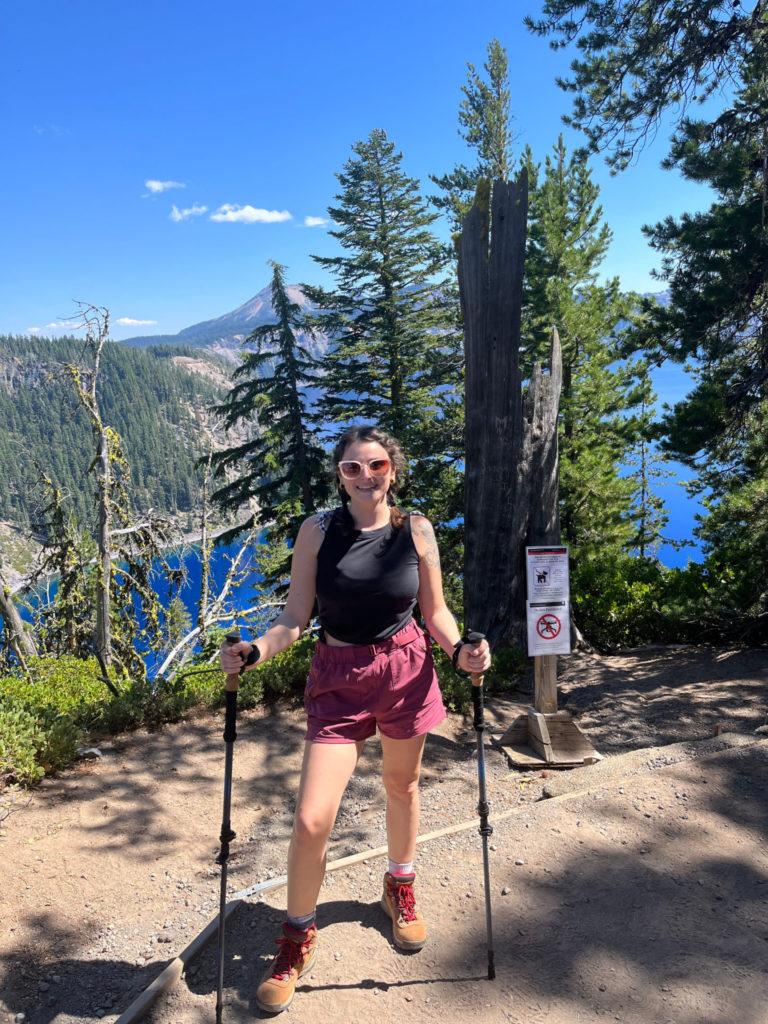
Diagnosis
When she told me I had breast cancer, in my head, I was like, but 3 months ago you told me 18-year-olds can’t get breast cancer. Now you’re telling me, as an 18-year-old, I do have breast cancer?
What was your diagnosis?
At first, I was like, okay, I’m good. When I brought it back to my mom, the breast specialist gave me a piece of paper that said fibro-something. That’s what she was calling it. I remember my mom taking the paper and being like, “I don’t know if I like this answer, but I’m going to trust the doctor because she knows more than me.”
When I went back again, when the lump had grown, I was still thinking, it’s definitely not breast cancer. It’s something else because she told me I couldn’t get breast cancer. Then the next day I was diagnosed after my biopsy. When she told me I had breast cancer, in my head, I was like, but 3 months ago you told me 18-year-olds can’t get breast cancer. Now you’re telling me, as an 18-year-old, I do have breast cancer? It was a little bit of shock and confusion about how it could have even happened to me so young.
Did the doctors apologize for their misdiagnosis?
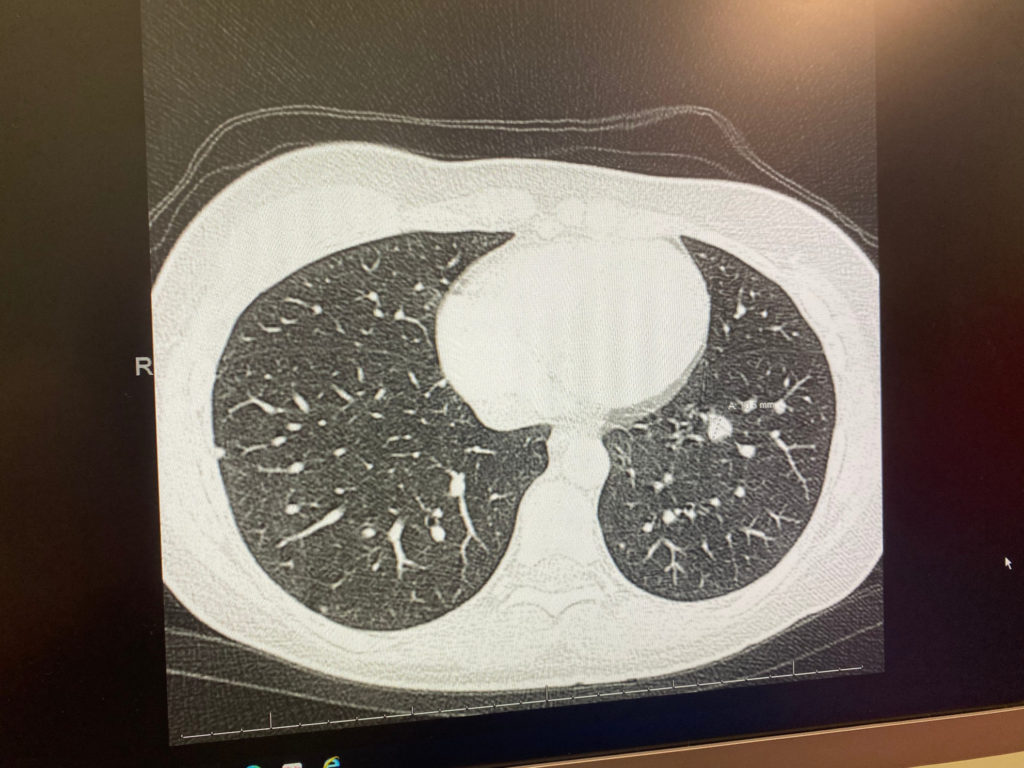
She did apologize. She sat me down, put her hand on my leg, and was like, “I’m so sorry. You have breast cancer.” I didn’t stay with her. My mom was actually very angry at her. I didn’t have any anger towards her, but my mom definitely did, of course, because she’s my mother. We left that hospital and went somewhere else.
Taking breast cancer in young people more seriously
I think doctors should be more aware because it’s happening more and more that people are getting breast cancer younger and younger. I think it’s really important for the doctors to know that so that they don’t get misdiagnosed like I was. By the time I went back after she misdiagnosed me, I had 4 new lumps that had grown. The lump had grown significantly. So would my staging have been different if they did catch it earlier?
I am a huge advocate for not only letting women – and men too because they also get breast cancer – know that they’re still at risk even when they are so young. Also making it so the doctors are aware of that as well.
It’s happening more and more that people are getting breast cancer younger and younger. I think it’s really important for the doctors to know that so that they don’t get misdiagnosed like I was.
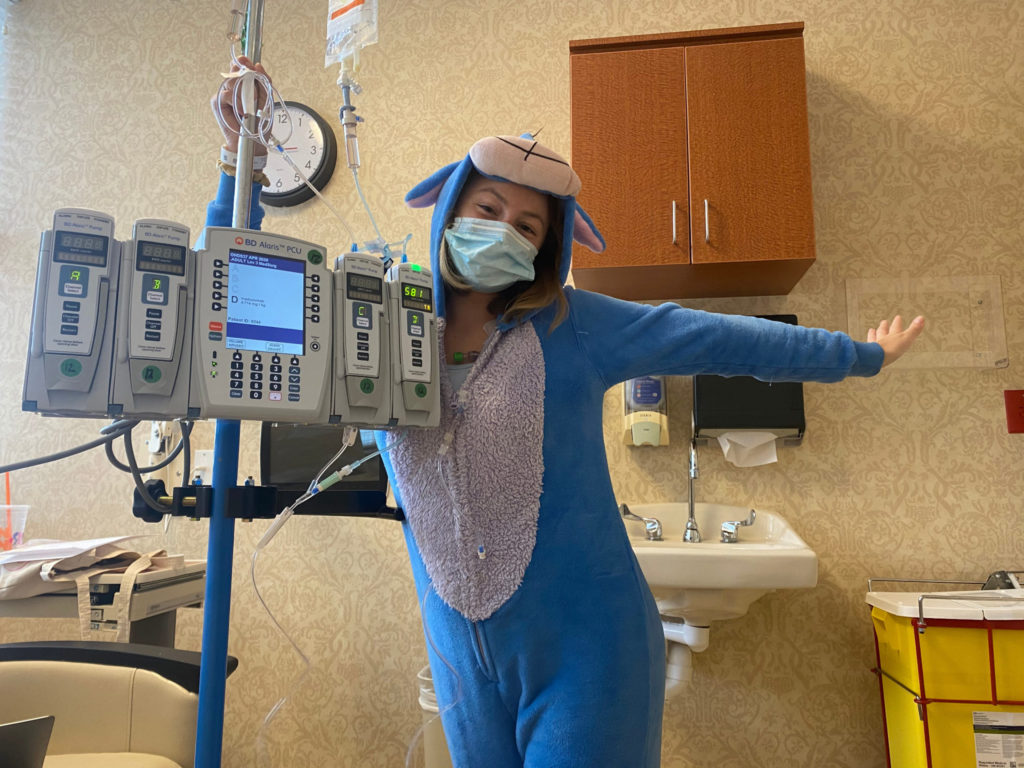
What was your staging?
I was diagnosed on May 6th, 2015, but they told me I was at an early stage. They’re like, “You’re young. We caught it early. There’s no need to worry. We’ll give you a double mastectomy and some radiation and you’ll be good.” We did all that. We had my mastectomy about a week after I was diagnosed, and then they gave me a PET scan about a month later. That’s when we found out that I wasn’t at an early stage. I was actually already metastatic, so I was already stage 4.
Where did you receive cancer care?
It was a team in Scranton, Pennsylvania.
The importance of advocating for yourself as a patient
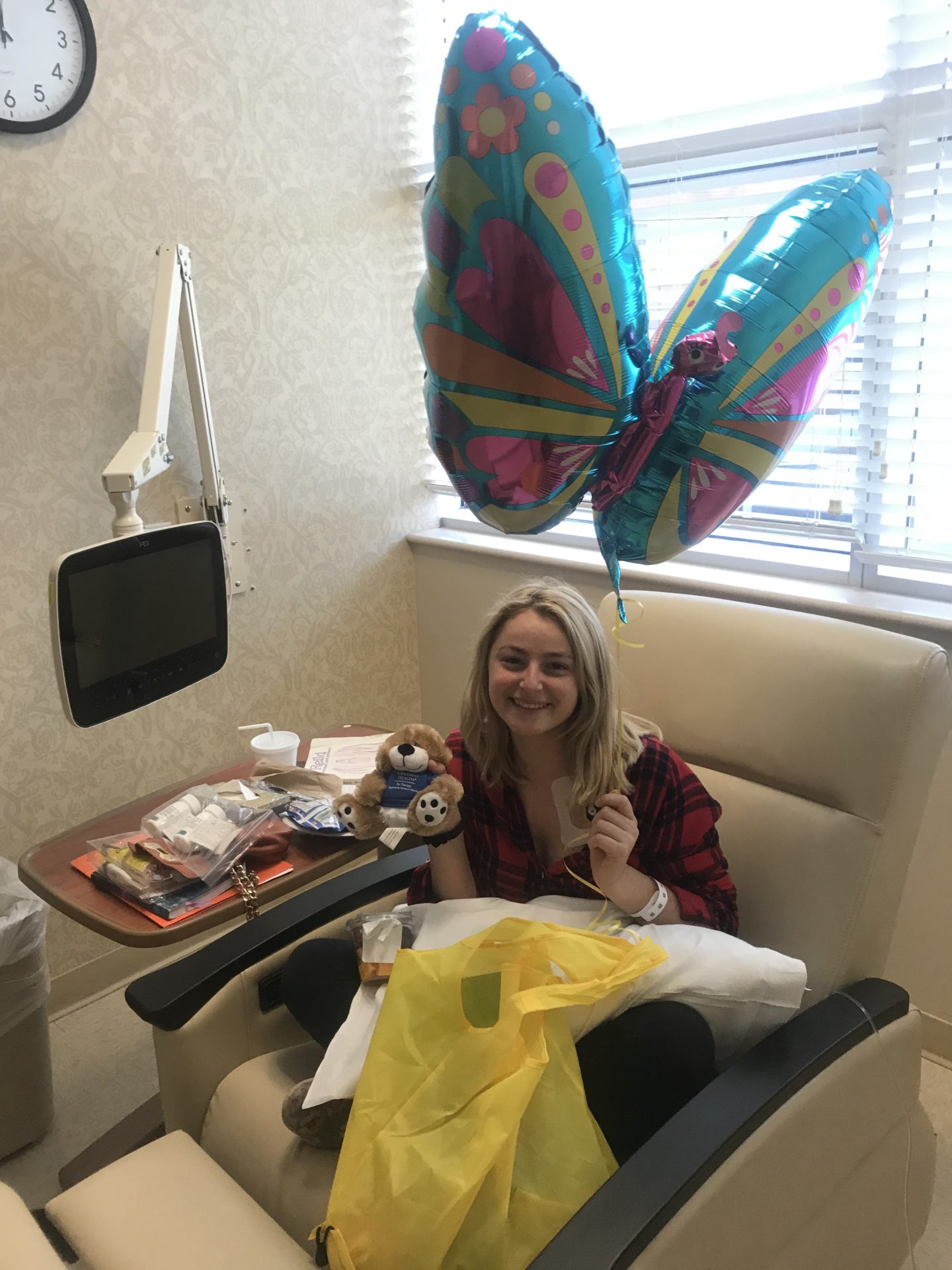
I ended up leaving that oncologist too. At the beginning of my journey, I didn’t really know to speak up for myself yet and to advocate for myself, so there were a lot of mistakes made with me. Now I look back and I feel like I could take what I learned from that time and help others who are going through the same thing and help them know what questions to ask, when to ask them, and if second opinions are necessary, which usually they are.
»MORE: How To Be A Cancer Patient Advocate
How did your doctors misdiagnose your staging?
They literally just diagnosed me at an early stage right after my biopsy. They’re like, “Oh, you’re stage 2.” Then I had my mastectomy a week later, and they saw it was in my lymph nodes. They said, “Actually you’re stage 3.” A month after that, they’re like, “Wait, you’re stage 4.” So I had a bunch of different staging throughout that whole month of being diagnosed with breast cancer.
It was tricky for them because they were in awe that someone so young at 18 had breast cancer. I felt like they couldn’t even imagine that an 18-year-old could have metastatic breast cancer. That’s where the mistakes came in because they didn’t know how to handle someone so young and I didn’t know to speak up for myself at that time.
I felt like they couldn’t even imagine that an 18-year-old could have metastatic breast cancer. That’s where the mistakes came in because they didn’t know how to handle someone so young.
How did you process your cancer diagnosis?
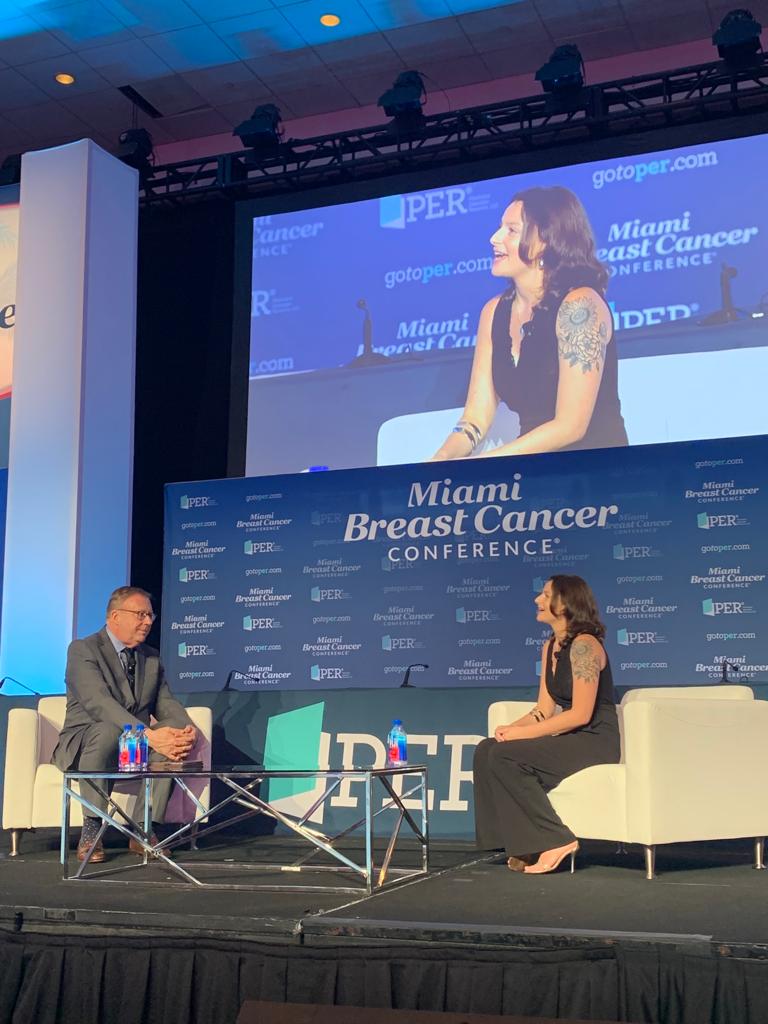
I really had to dig deep within myself and I had this strong knowingness that it was going to be okay no matter what. I had to learn to trust that strong knowingness that I had inside rather than the fear that I was feeling at the moment.
I didn’t even really know what cancer was. I had just heard of it. I didn’t have anyone in my life who was really affected by it so I really didn’t know much about cancer at all.
It was interesting. I feel like when I got the early diagnosis, it was easier for me to move through my emotions because all the doctors kept telling me, “You’re going to be good, you’re going to live a long life. This is what we’re going to do, and then you’ll be cancer free.” I was actually told I was cancer-free after my mastectomy. That part was easier for me to take in. But when I got the stage 4 diagnosis about a month later, that one was harder for me to hear because they said it’s not curable, but it’s treatable. I’ll have to live with this for the rest of my life.
»MORE: Reacting to a Cancer Diagnosis
I was set to be graduating high school in a week. I was supposed to be starting my life, but I’m being told it might end. I really had to dig deep within myself and I had this strong knowingness that it was going to be okay no matter what. I had to learn to trust that strong knowingness that I had inside rather than the fear that I was feeling at the moment.
Treatment
Why did you choose a double mastectomy?
I almost threw up when I first saw what I looked like because I went from a double-D to just flat…That was a sight I had to take in and realize that I’m going to have to learn to love my body again after I went through this.
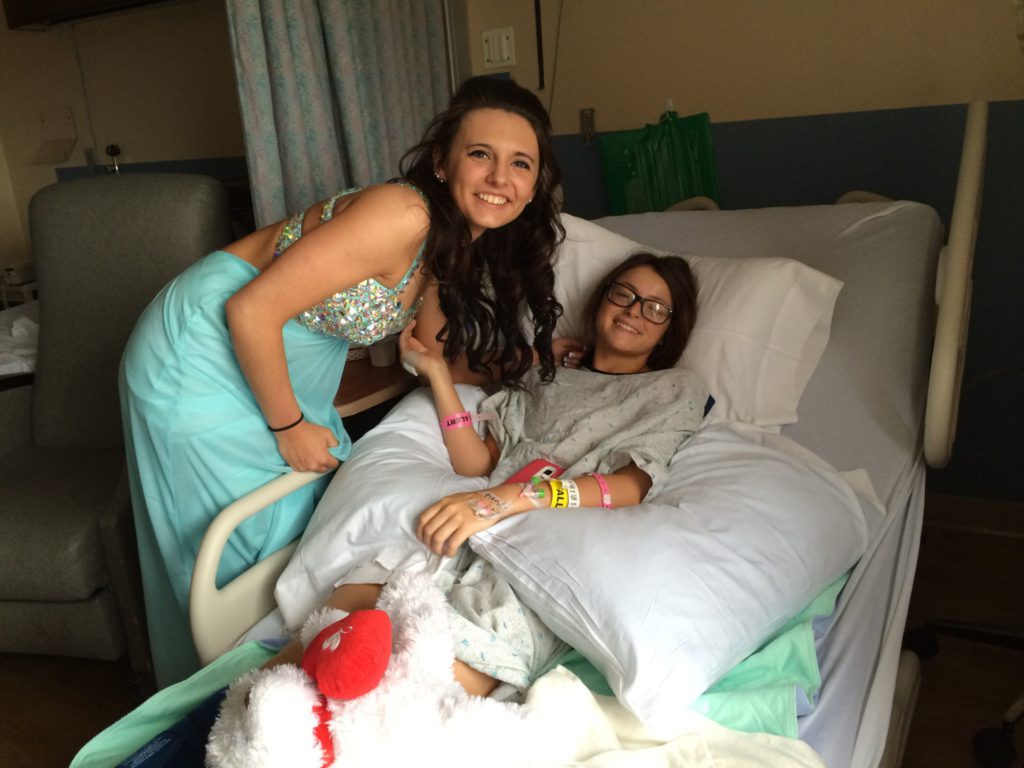
I learned that I had to have a double mastectomy the same day I was diagnosed with breast cancer. Straight after being diagnosed, they sent me to a surgeon who then said it would be best to remove both breasts. They said, “Since you’re so young, we want you to live a long life. Having a mastectomy is the best option.” I feel like I didn’t have any time to digest that because then they scheduled my surgery for a week later. There was really no time for me to think about it. When you have cancer, things move pretty fast.
I was able to make peace with it. I felt like my breast had been invaded and I was like, okay, I just want them off now. I just wanted to live a long life, so I made peace with losing my breasts at 18 years old.
When I had the mastectomy, it was the day of my senior prom. My best friend came to visit me and her hair was curled, she was in this beautiful gown, and I was in the hospital in a hospital gown instead of dancing the night away at my senior prom.
After the surgery, I remember my surgeon unwrapping my chest, and I honestly thought I was going to be okay seeing it, but I remember feeling disgusted. I almost threw up when I first saw what I looked like because I went from a double-D to just flat because I had delayed reconstruction. All I saw was bruising and blood. I had drains coming out of the side of me. That was a sight I had to take in and realize that I’m going to have to learn to love my body again after I went through this.
Describe your recovery post-surgery
For the recovery, they had me stay in the hospital for a few days after because I was so young and they wanted to look after me and see how everything was going. I had my mom and my partner at the time. They would sleep in the hospital with me and help me get up and walk. I remember I had a bunch of nurses behind me and everyone was parading around me while I made laps around the hospital as I walked for the first time after my surgery. It was really nice.
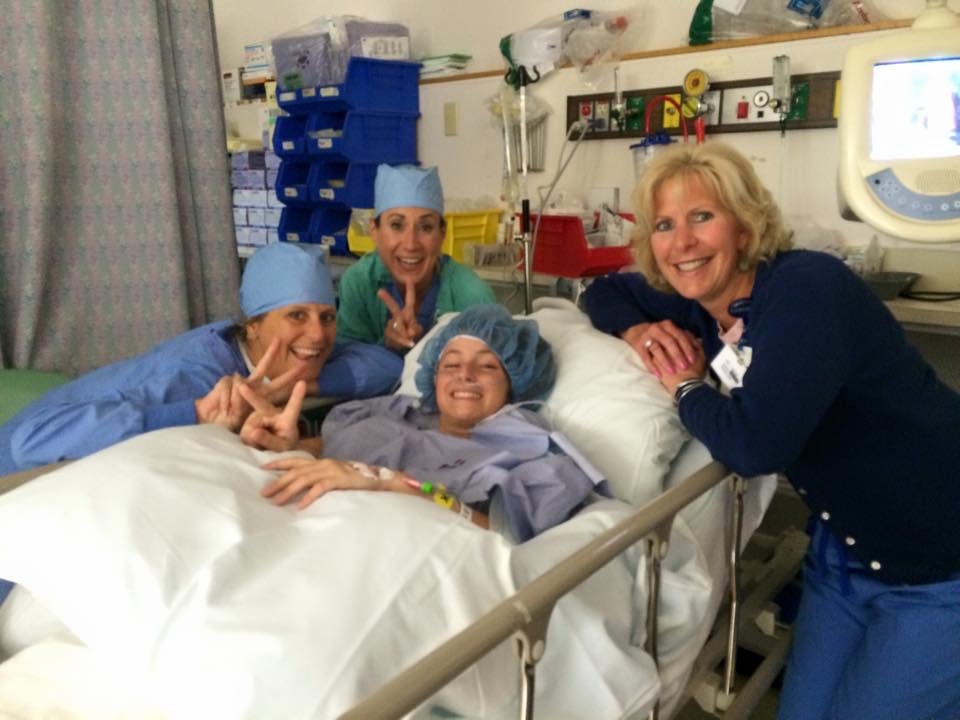
I had the most incredible team of doctors and nurses who took care of me during my surgery. They even asked me what my favorite song was, my favorite artist, and they played my favorite artist while I was having my surgery even though I was unconscious. They said they were listening to the music that I would have liked. It was nice to have that type of support from nurses and doctors when you’re going through something like this.
A PET scan revealed she was stage 4
That’s when she started telling me that the cancer had spread all throughout my bones and in my liver.
I never had to do radiation. They initially told me I would have to when they thought I was at an early stage, but then I had my PET scan a month later. It was crazy because my oncologist wouldn’t answer any of my calls. I was calling her, trying to figure out what my results were because I thought they were going to be okay. Everyone kept telling me you’re going to be fine. You’re cancer free now. I honestly thought my scan results were going to be good and kept calling anyways because I wanted that confirmation.
She had set up an appointment with someone in New York, another oncologist. Because I was so young, she wanted a second opinion for me to make sure she was putting me on the right treatment. I went to that appointment with my mom, my grandfather, my partner at the time, and my dad. Everyone came with me. We were all expecting good news. But this doctor walked in who I was meeting for the first time, she sat down, I leaned across the desk, and I’m like, how are my results? She looked at me with this concerned look, and she pushed a folder towards me, opened it, and said, “You don’t know?” I’m like, know what? She said, “There were spots.” That’s when she started telling me that the cancer had spread all throughout my bones and in my liver. I asked her, so what do I do? Do I do chemo and then I’m good? That’s when she said it’s treatable but it’s not curable. I’ll have to live with this for the rest of my life. That’s truly when I lost it and ran out of the room and let my family handle the appointment for me.
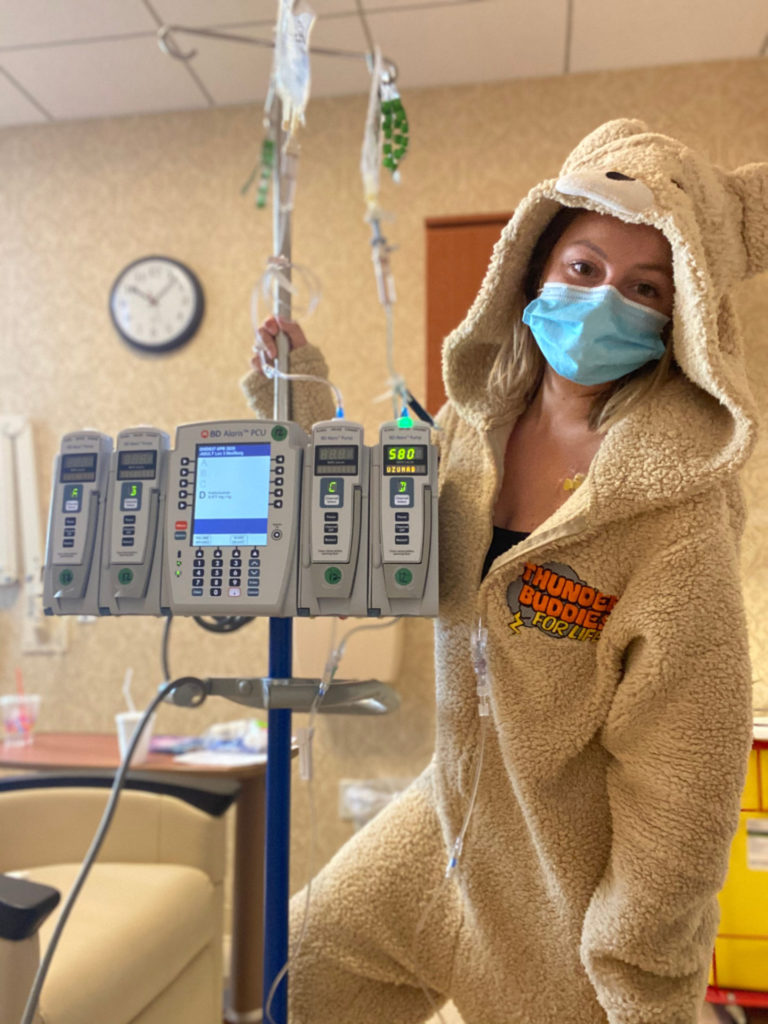
What led you to your next oncologist?
Every time I had a bad scan, he would tell me, “It’s okay, we’re going to get through this” and end the conversation with hope.
I felt like it fell in perfectly for me because my older friend knew someone who was an oncologist she loved. She set me up with him and he is still my favorite doctor that I had in my entire life. He was hope. He never let me believe that this disease was going to take my life. He said, “These are just bumps in the road. We will get through them together.” Every time I had a bad scan, he would tell me, “It’s okay, we’re going to get through this” and end the conversation with hope. He was the most amazing doctor in the world. I was truly blessed with him and it was easy to find him because I felt like the universe had him there for me. I got really lucky.
What side effects have you experienced on cancer treatments?
There’ve been a lot of different side effects depending on the treatments that I’ve been on. The ones that really were harsh on me were nausea and vomiting. The one I’m currently on now actually causes a lot of nausea and vomiting.
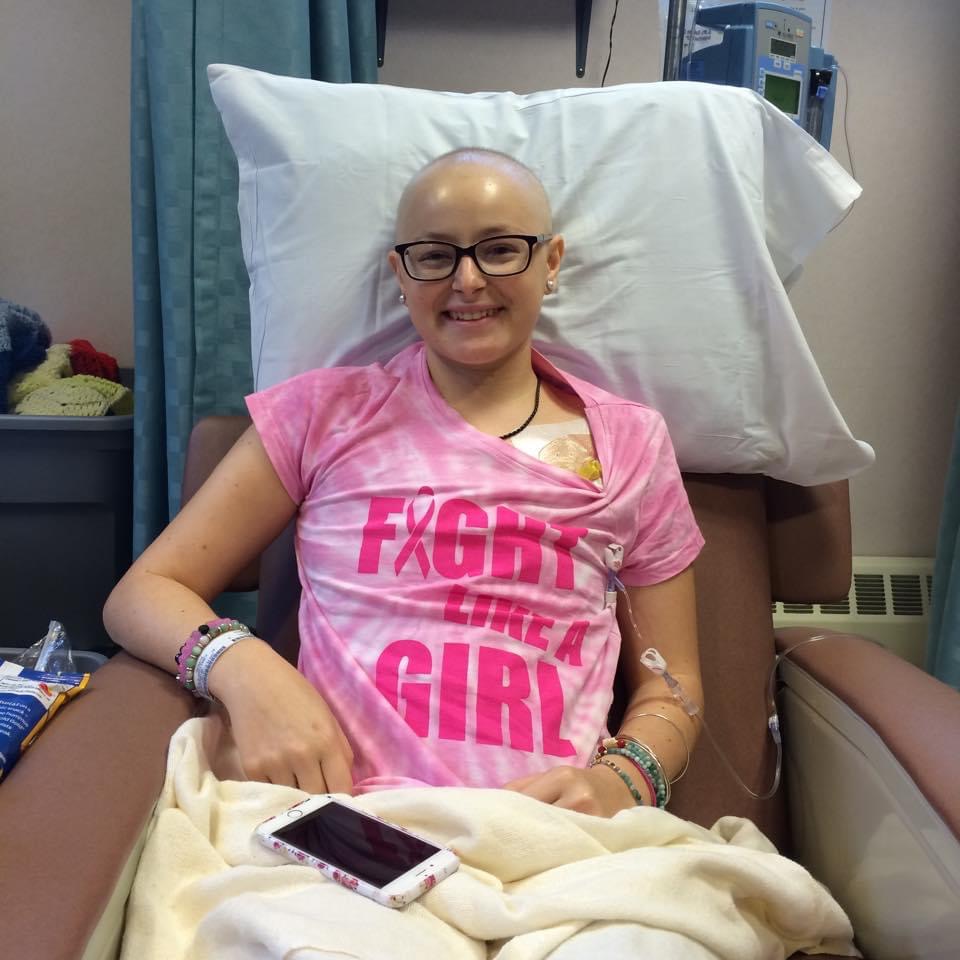
There are some days when you need to lay in bed and rest. Please do that. That took me a long time to realize too, that it’s okay to rest. You can be living a great life on your couch.
I learned that it’s okay to take the nausea meds. There’ve been times when I just didn’t want to take it because I was like, no, it’s an extra medicine. I just don’t want to take it. I would suffer and there was no reason for me to suffer when I can just take the nausea medicine to help me feel better. That’s something I learned along the way, as well as ginger chews and there are a bunch of things you can do to help with the side effects.
»MORE: Cancer Treatment Side Effects
Another big one that I struggled with throughout the years and right now from my current treatment is fatigue. I’m literally in bed for 10 out of 21 days with fatigue. It sounds weird, but I swear, getting up and taking a walk truly helps with the fatigue as well as resting. There are some days when you need to lay in bed and rest. Please do that. That took me a long time to realize too, that it’s okay to rest. You can be living a great life on your couch. When I start getting towards the end of that 10th day, getting up and walking truly gives me more energy somehow and makes me feel good emotionally and mentally and that helps me a lot.
What cancer treatment are you currently on?
I’m on a new treatment called ENHERTU and it’s a tough treatment, but it’s a miracle treatment for a lot of people. It’s really helping to extend their lives and help their body heal from cancer.
Describe your experience on ENHERTU
When I first learned that I had progression to my lungs and needed to switch my treatments, I was pretty resistant to it when I learned all the side effects and my oncologist told me I was going to lose my hair again because it was so new. A lot of people were losing their hair, so that’s what they knew of it, and I was really resistant.
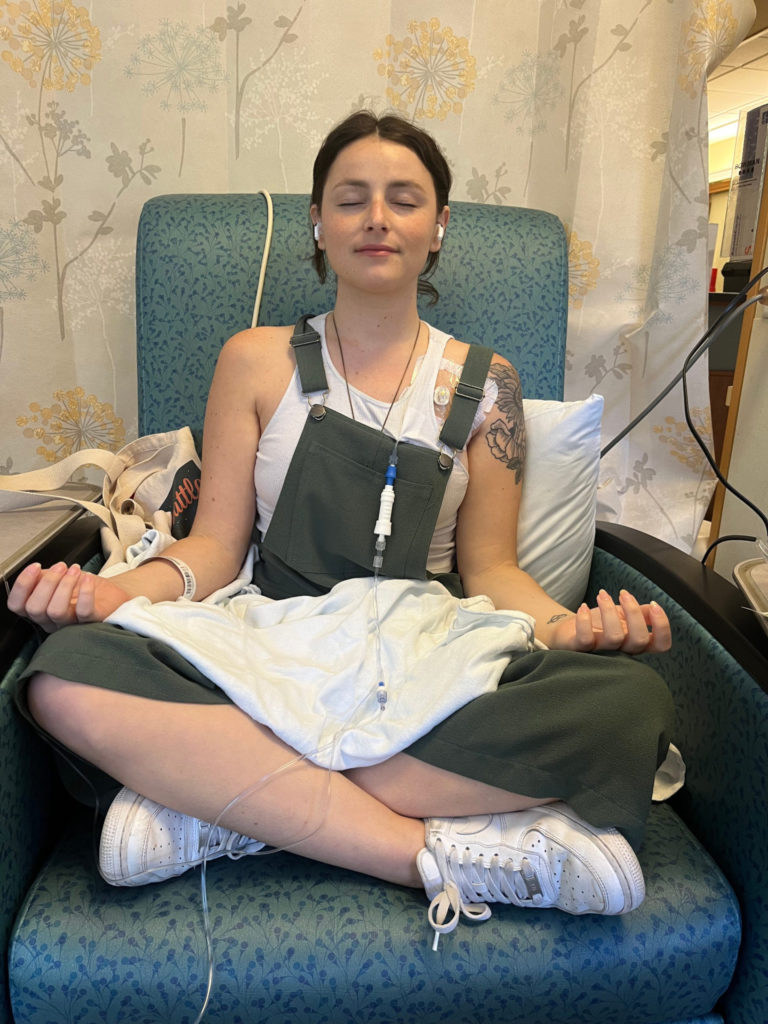
I waited a few months before starting it because I was so scared of it. I decided to go into it with a love mindset instead of a fear mindset. I was like, okay, this is going to help me heal. Every time I get it, I meditate through it and visualize it, healing my body. But it has been a tougher drug. It comes along with a lot of side effects like nausea, vomiting, and fatigue. I’m learning to navigate my way through it, and it’s an infusion that I receive every 21 days. I am down for about 10 of those days and then I start regaining my energy again and I start feeling like myself again, and then I have treatment again. It’s like a recycle repeat.
»MORE: Patients & Navigating Life with Cancer
A lot of my friends are on it too, and it’s truly helping them heal their cancer and make it either no evidence of disease at all or regression in their body, which is what we want when you’re living with a stage 4 diagnosis. It’s hard, but it’s a miracle.
Quality of Life
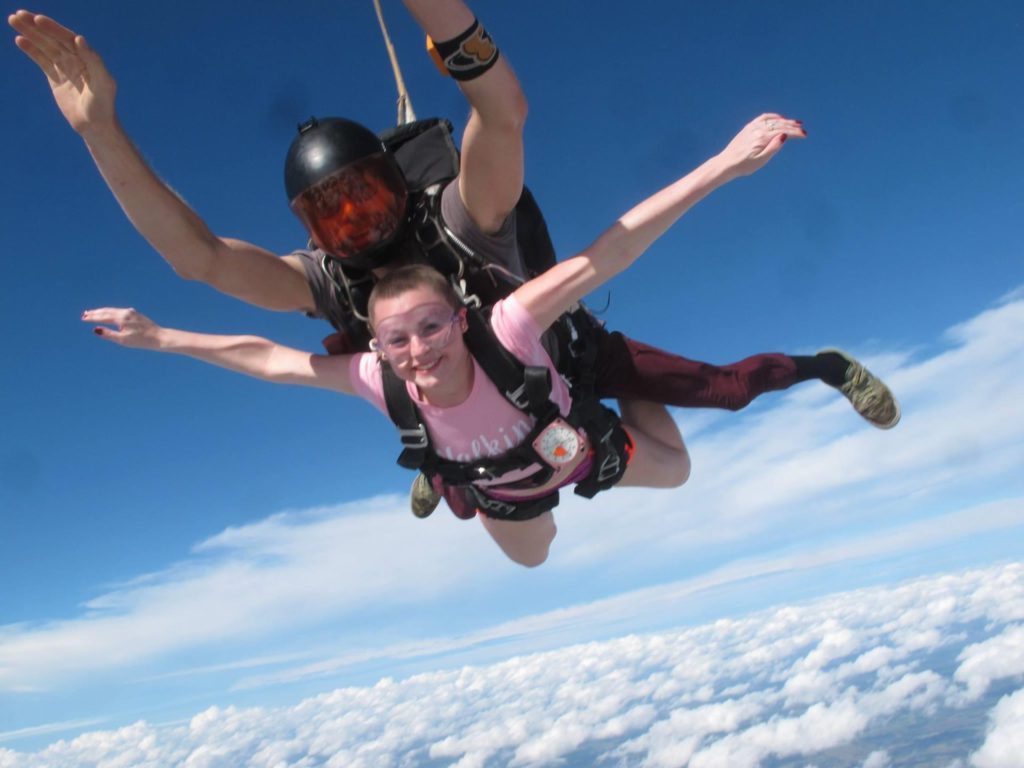
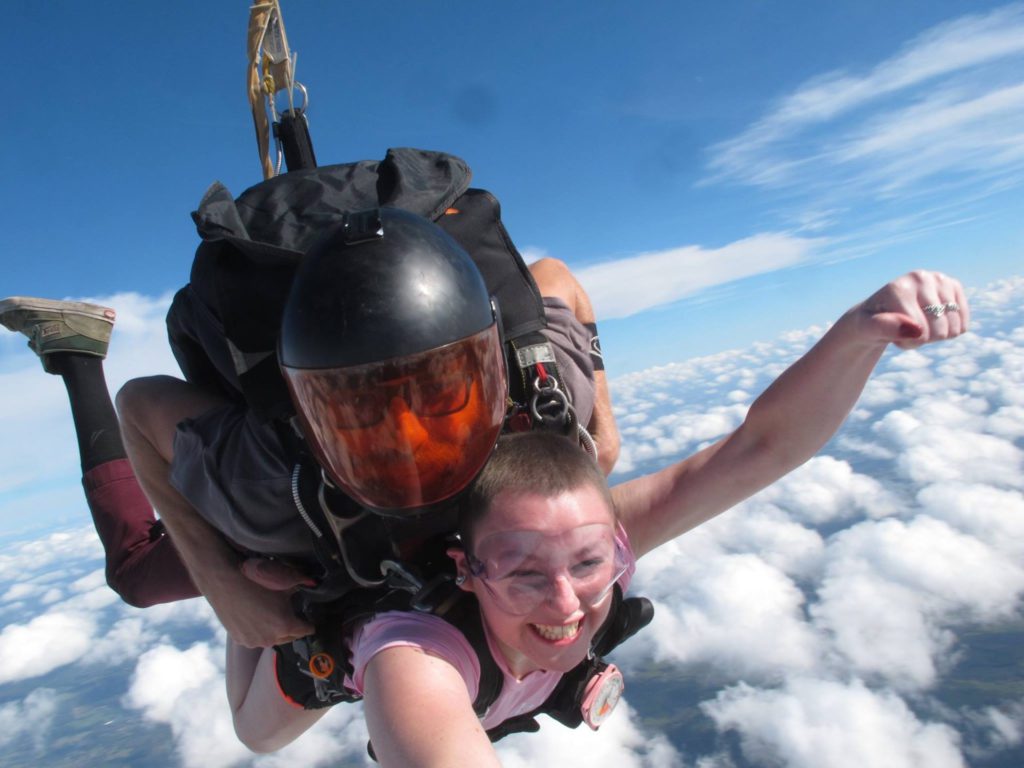
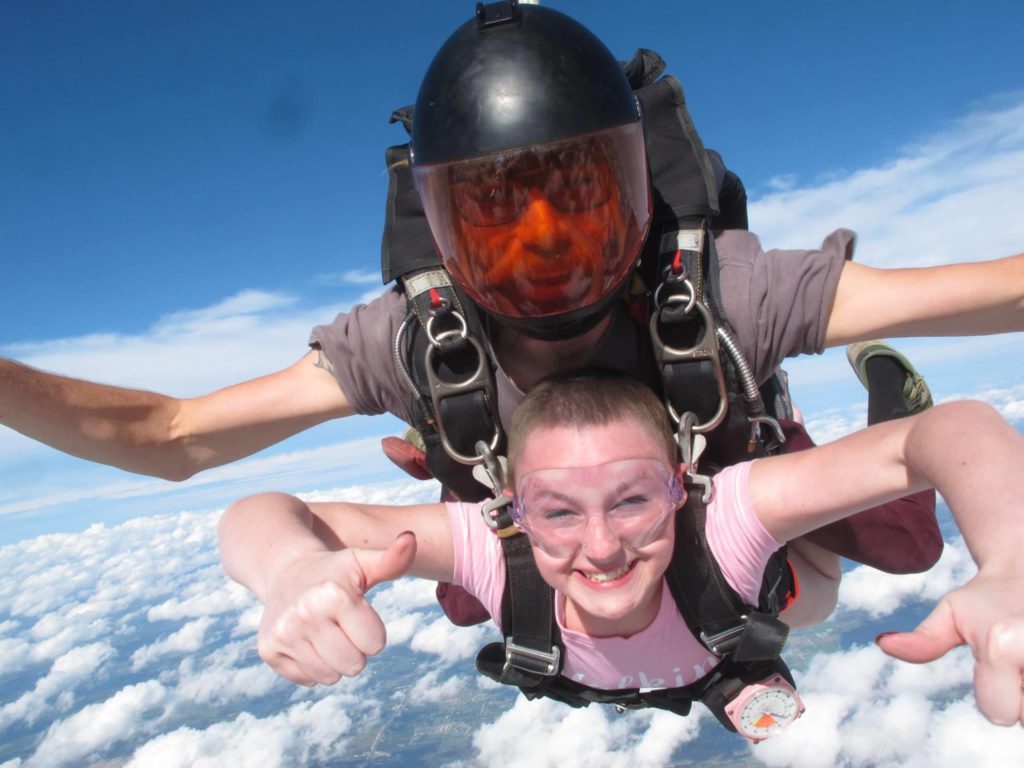
What’s helped you stay strong throughout your cancer journey?
This was a huge part of my mindset from that same doctor who told me it’s not curable, but it’s treatable. When I came back into the hospital after going out to the garden and crying, thinking my life was over, she made sure to tell me that she had patients alive and doing well since the 90s with this same disease, that the future was bright, and that there were treatments coming out more and more every day.
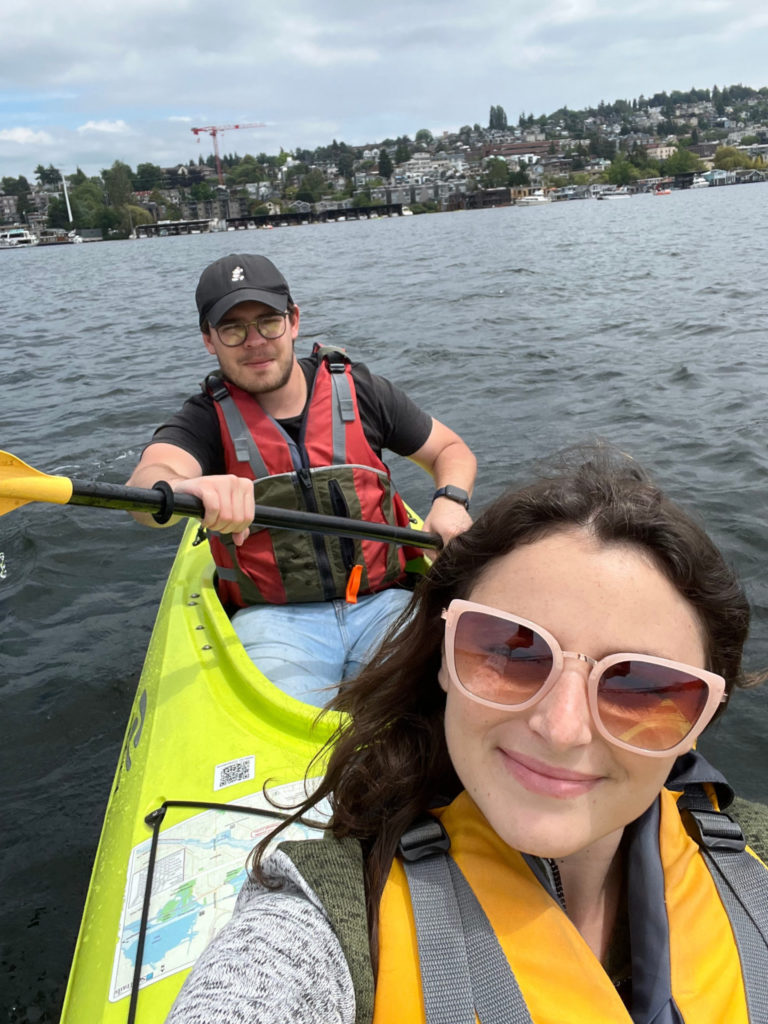
Because she told me that, I had such a strong mindset throughout my journey. I was able to handle what I was going through a little better because she gave me hope so early on. I’m still doing scans every 3 to 4 months and I get treatment every 21 days. I’ve been getting treatment every 21 days for the past 8 years now. I’ve been on a lot of different lines of treatment over the years.
Describe your quality of life living with stage 4 breast cancer
Living with a stage 4 diagnosis definitely has a lot of up and downs. I’ve been at my lowest points where I feel like I’m stuck and it’s never going to get better, which was never true. I always got through those points in my life where I thought that I couldn’t. I am truly living a life better than I could have imagined, even with cancer. I am traveling and doing everything my little heart desires.
I think that’s a misconception about cancer. Some people think, “Oh, you have cancer, your life is over,” but that’s not true. My life began after I had cancer and I was still able to do everything that I wanted to. I had to pivot a lot of times because cancer did take some things away from me, but I pivoted and then found a new path for myself. A beautiful path. I’m living with stage 4. It’s hard, but it’s still beautiful.
It was in my bones, my liver, my brain, and most recently a year and a half ago, my lungs. But currently, my brain has been clear for 4.5 years, which is amazing. My liver is clear, my bones are having regression and my lungs are having a regression.
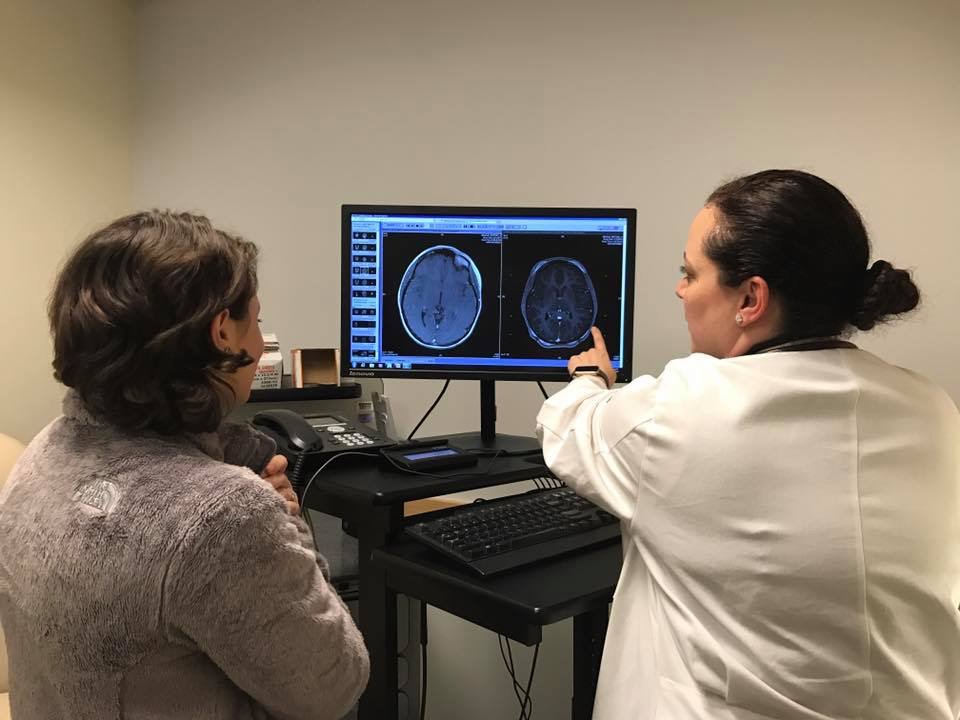
Do you experience scanxiety?
I used to experience a lot of scanxiety at the beginning, which is totally normal. Every 3 months, you’re taking a peek into your body to see if the cancer is regressed, stable, or growing. If it’s growing, it’s going to send you on a whole different path. That used to really scare me. Now I’ve realized that it’s truly a blessing to have these scans because it’s going to put you on a new path. If for some reason what you’re doing right now isn’t working, it’s going to put you on a new path for healing. I view it from a miracle standpoint, like how awesome is it that we get to take a peek into our bodies? Incredible.
What have the results of your scans been over the years?
Over the years I’ve had a lot of progression. I went through this loop of having no evidence of disease to progression. It was in my bones, my liver, my brain, and most recently a year and a half ago, my lungs. But currently, my brain has been clear for 4.5 years, which is amazing. My liver is clear, my bones are having regression and my lungs are having regression.
In my most recent scan this past year, I kept having more and more progression, then this last scan showed that it’s actually getting better.
Reflections
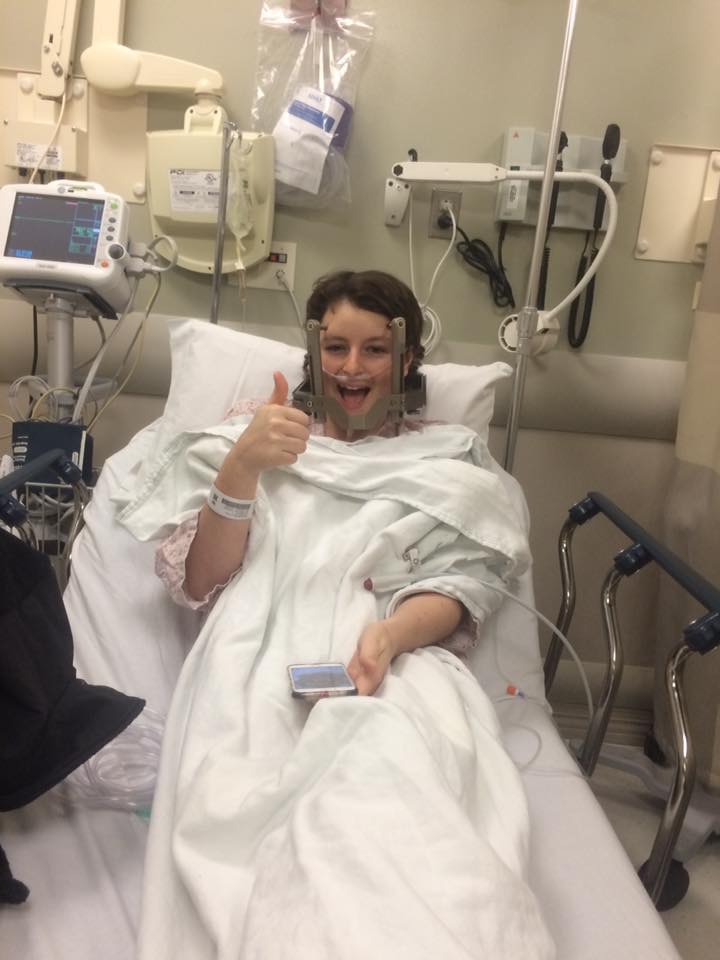
Do you follow news about new clinical trials and breast cancer treatments?
I do follow up on it. There was a clinical trial that’s like a vaccine they’re doing in Seattle. I just reached out to them to have that in my back pocket just in case.
I follow that stuff because that’s what helps me to keep going sometimes – the thought that this treatment is hard, but it’s going to be a temporary treatment until I find something even better. Thinking of it that way keeps me going about all the wonderful possibilities that could be in my future. This isn’t my forever, this is my for now. I just need to take it one step a day and get through it for a brighter future.
The importance of finding a caring medical team
I love a team of doctors who are going to tell me what I need to know, but then end every conversation with a little bit of hope, because we truly cling to what the doctors say to us.
I definitely learned to advocate for myself throughout this and make sure that I’m saying all my concerns and asking all my questions. If my team of doctors isn’t listening to me, it’s okay to find a new team of doctors who are going to better support me, because not every doctor is going to be for you, and that’s okay.
Personally, I love a team of doctors who are going to tell me what I need to know, but then end every conversation with a little bit of hope, because we truly cling to what the doctors say to us. When they’re just saying scary things to us and that’s it, we’re going to cling on to that and accept that for ourselves. But if they leave us with some hope, we’re going to leave feeling a little lighter than we came in, and that’s important.
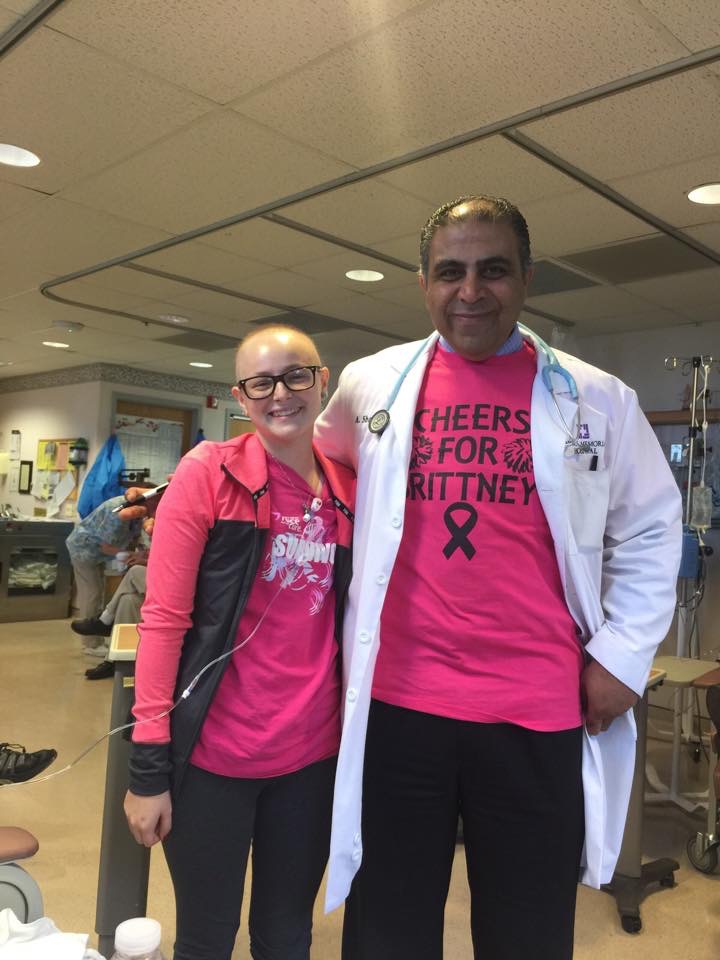
How have you found good medical care throughout your moves?
I moved a bunch of different times and I do a lot of research looking for an oncologist. I read their bio, see if they seem like they’re a good fit for me, and even interview doctors because they’re working for you. They have your life in their hands, so you need to make sure that they are aligned with your values and your beliefs, and what you want for yourself. I’m all about interviewing doctors and making sure they’re the right fit for you.
I moved to Florida after Pennsylvania, so I left my favorite oncologist but he’s still there. If something hits the fan, I’ll send him my results and he’ll help come up with a plan. I’ve switched a few times in Florida looking for the right one, and I actually got lucky because there’s a whole Instagram community, which is amazing. There were people living in Orlando, and they recommended my oncologist. I swear she saved my life because she got me on a clinical trial and she was so smart and knowledgeable.
It’s the same with where I am now in Seattle. When I did my research and found her I got confirmation because when I told people that I was moving to Seattle, I had a bunch of people reach out to me saying, “You have to look up this oncologist. She’s amazing.” It was confirmation that I was with the right oncologist.
Keep living your life despite this diagnosis and know that you can still make a beautiful life for yourself while living with cancer and that there is so much hope. Keep believing in yourself and you’re going to get through this.
Finding cancer support
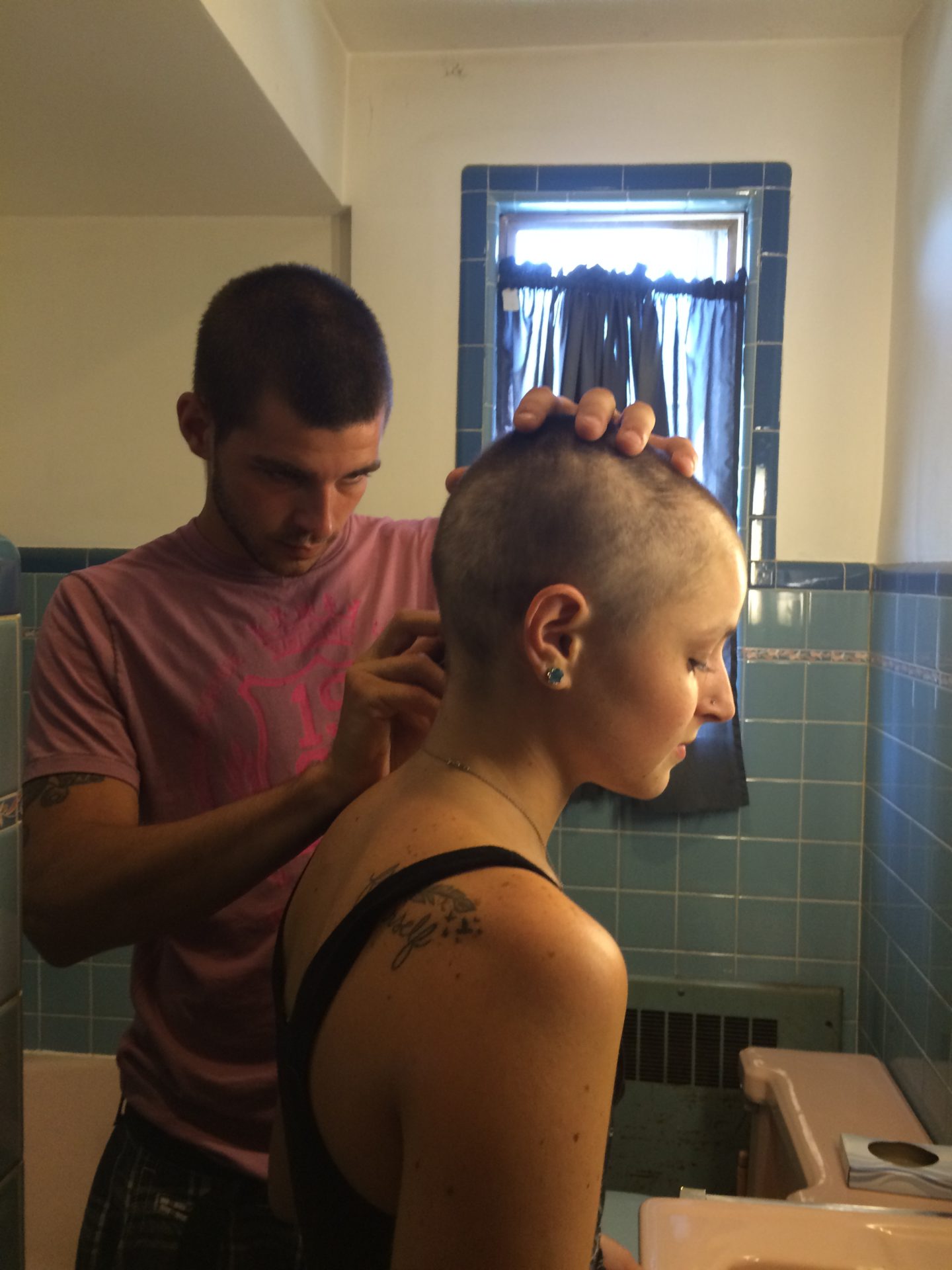
My number 1 support system – besides my friends and my family, because I am blessed with the most amazing people in my life – is the Instagram community. I remember I felt so alone in the beginning because I didn’t know anyone my age going through breast cancer. Then one day, I typed in “breast cancer” and found this whole Instagram community. I honestly feel like that’s what helped me get through everything, finding this community on there. I was able to ask them questions and they were there for me when I needed them. It’s just a loving community.
»MORE: Cancer Support After Diagnosis
What’s your top advice for someone on their cancer journey?
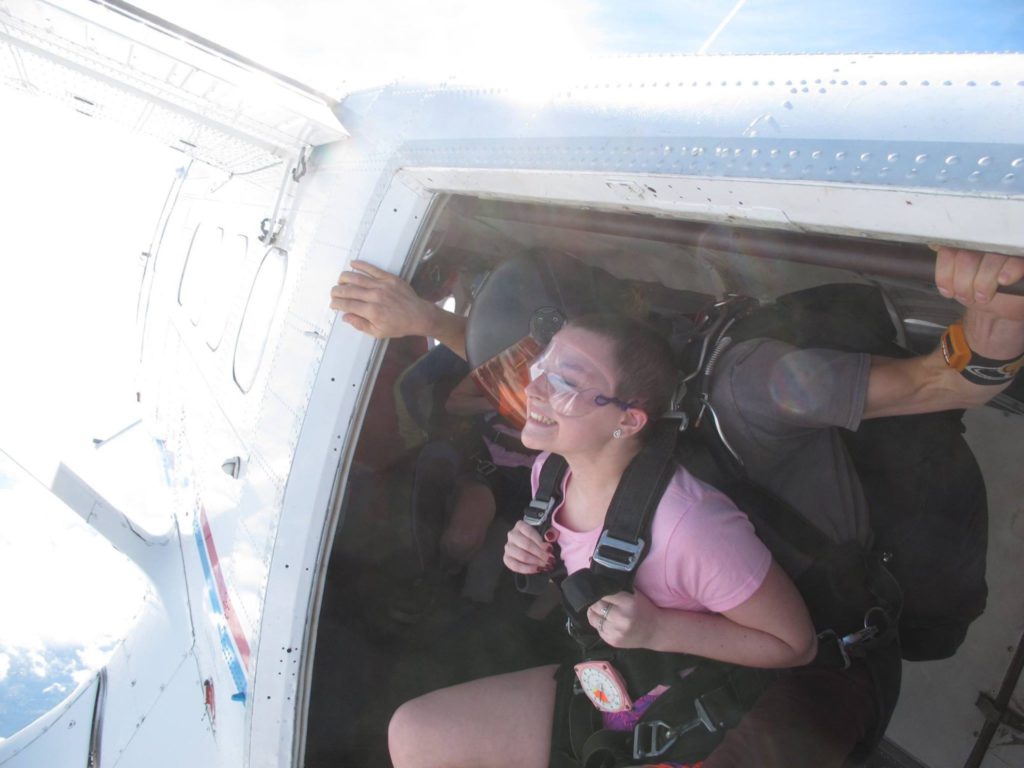
There are so many things I can say. My number 1 advice has changed throughout the years. I’ll learn something new and be like, Oh, wait, what about this? But I think my advice would be to keep living your life despite this diagnosis and know that you can still make a beautiful life for yourself while living with cancer and that there is so much hope. Keep believing in yourself and you’re going to get through this.
More Metastatic Breast Cancer Stories
Deb O., Breast Cancer (De Novo Triple Positive and ER+ HER-)
Symptoms: First instance: appearance of lump that later on increased in size, orange peel-like skin around inverted nipple, persistent ache under right arm; second instance: appearance of lump
Treatments: First instance: chemotherapy, targeted therapy, hormone therapy; second instance: surgery (mastectomy), chemotherapy, radiation therapy, CDK 4/6 inhibitor
Tammy U., Metastatic Breast Cancer, Stage 4
Symptoms: Severe back pain, right hip pain, left leg pain
Treatments: Surgeries (mastectomy, hip arthroplasty), chemotherapy, radiation therapy, hormone therapy, targeted therapies (CDK4/6 inhibitor, antibody-drug conjugate)
Nicole B., Triple-Negative Metastatic Breast Cancer, Stage 4 (Metastatic)
Symptoms: Appearance of lumps in breast and liver, electric shock-like sensations in breast, fatigue
Treatments: Chemotherapy, surgeries (installation of chemotherapy port, mastectomy with flat aesthetic closure), targeted therapy (antibody-drug conjugate), hyperbaric oxygen therapy, lymphatic drainage
Dalitso N., IDC, Stage 4, HER+
Symptoms: Appearance of large tumor in left breast, severe back and body pain
Treatments: Surgery (hysterectomy), vertebroplasty, radiation therapy, hormone therapy, clinical trial
Marissa T., ILC, Stage 4, BRCA2+
Symptoms: Appearance of lump in right breast, significant fatigue, hot flashes at night, leg restlessness leading to sudden, unexpected leg muscle cramps
Treatments: Chemotherapy, hormone therapy, PARP inhibitor, integrative medicine
Janice C., Triple-Negative Metastatic Breast Cancer, Stage 4
Symptoms: Appearance of lump in left breast near sternum, fatigue, bone and joint pain
Treatments: Surgery (lumpectomy), radiation therapy (brachytherapy), chemotherapy
Dana S., IDC, Stage 4 (Metastatic)
Symptom: Appearance of large lump in left armpit
Treatments: Targeted therapy, hormone blockers, bone infusions
Maria S., Breast Cancer, Stage 4
Symptoms: Intermittent but severe pain including a burning sensation on the side of the breast, appearance of a cyst and a lump, abnormally warm and pink-colored breast, nipple inversion, strangely liquid menstrual periods, unusual underarm odor, darkening and dimpling of the nipple, severe fatigue, night sweats
Treatments: Chemotherapy, surgeries (mastectomy, lymphadenectomy), radiation therapy, targeted therapy
- 1
- 2
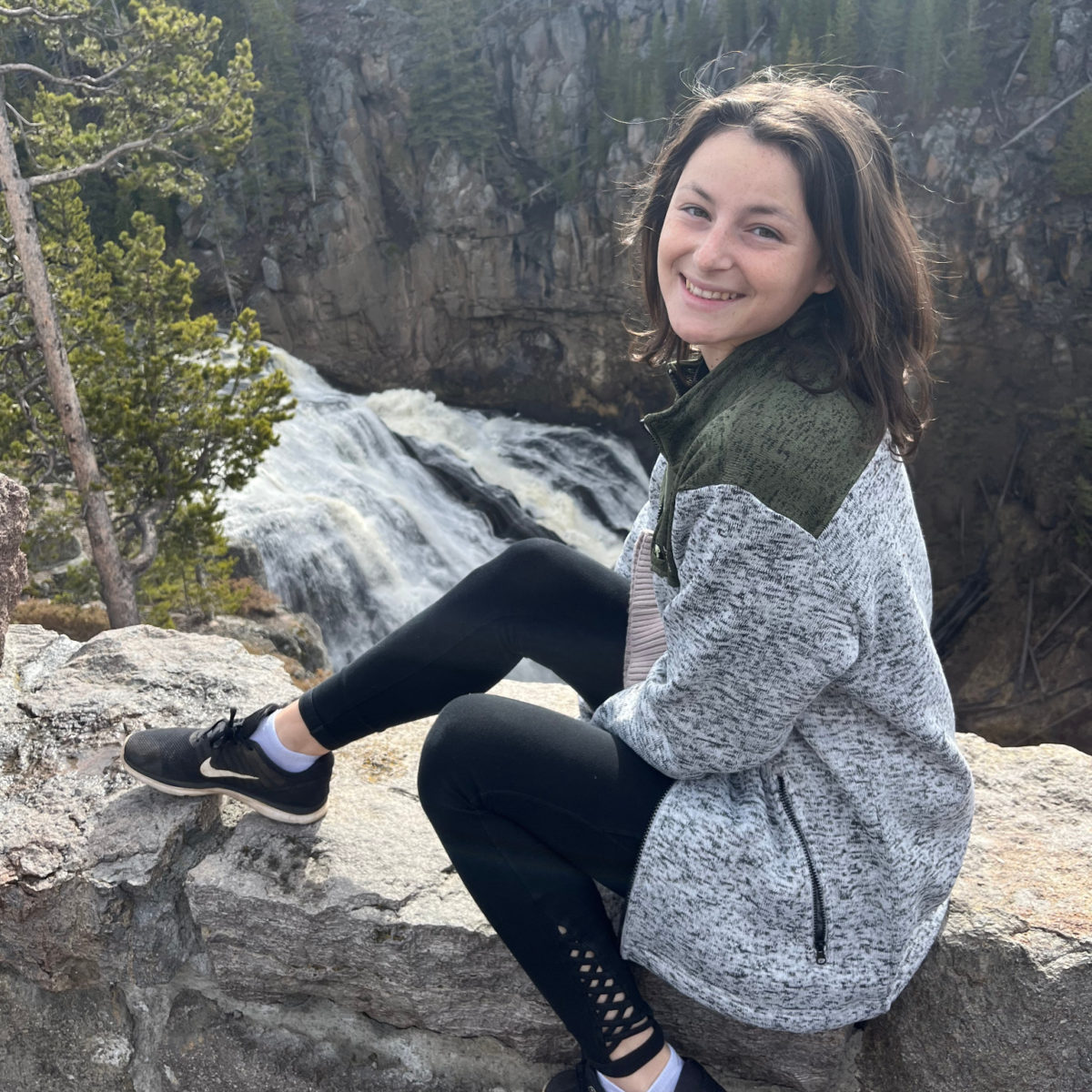
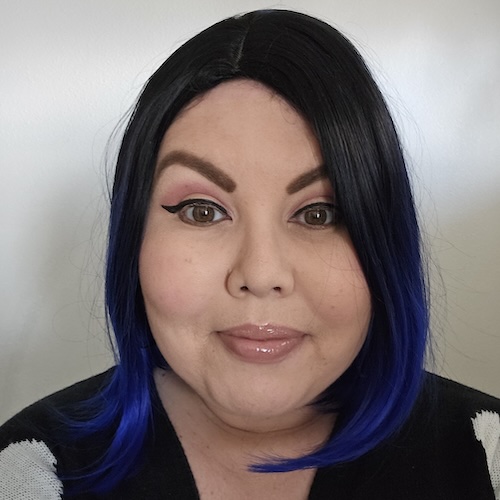
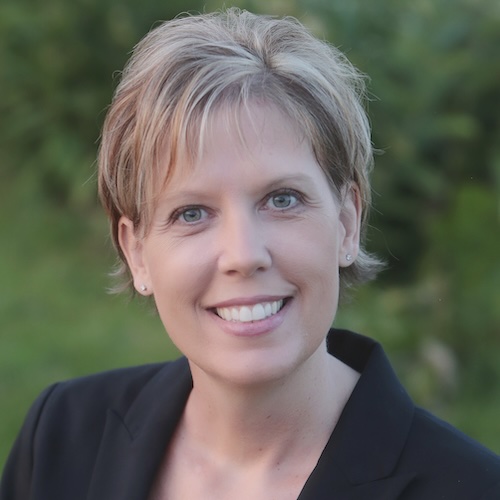
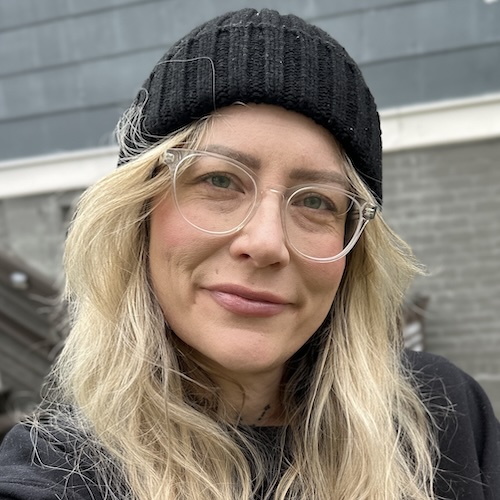
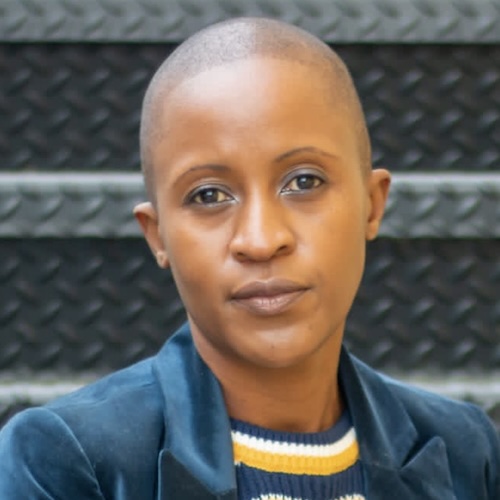
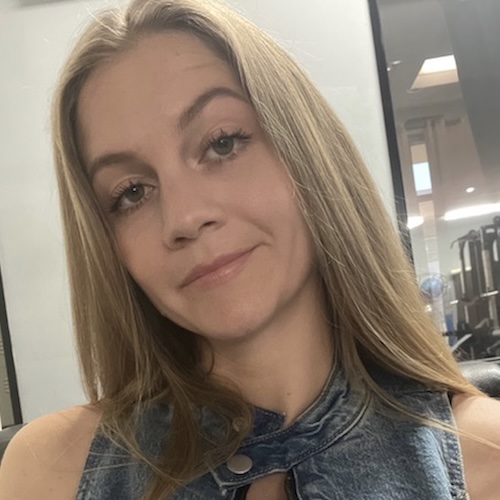
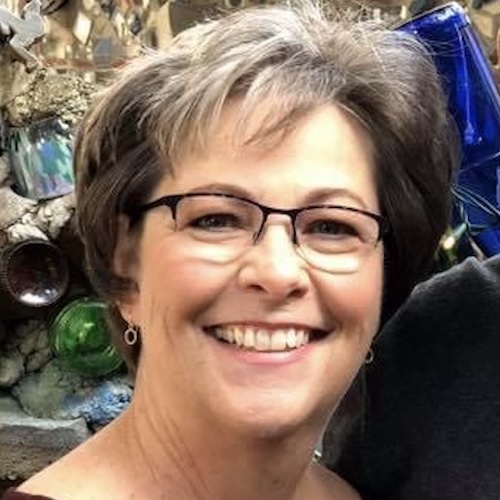
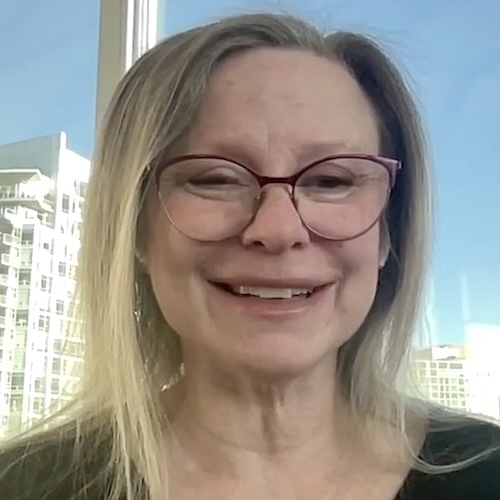
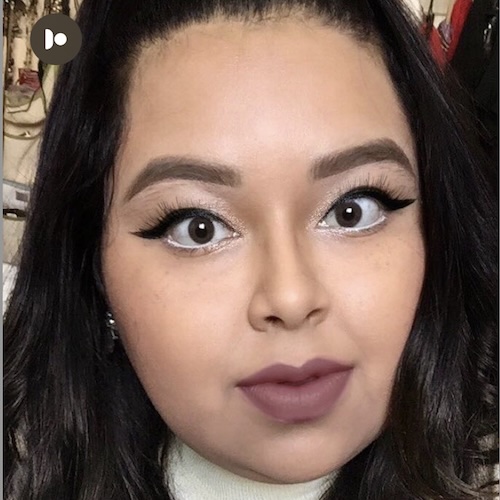
One reply on “Brittney Beadle’s Stage 4 Breast Cancer Story”
Was yours tripile negative?